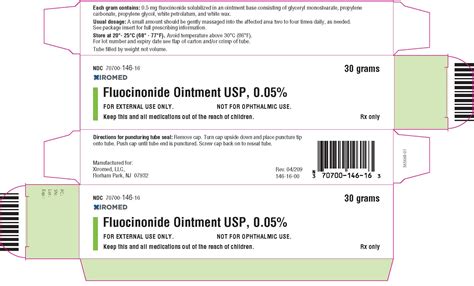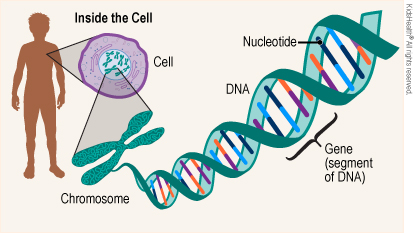How Is Alpha Antitrypsin Deficiency Managed? Expert Guidance

Alpha-1 antitrypsin deficiency (AATD) is a genetic disorder that can lead to lung and liver disease. Managing this condition requires a comprehensive approach that involves lifestyle modifications, medical interventions, and, in some cases, surgical procedures. The primary goal of management is to reduce symptoms, improve quality of life, and prevent disease progression.
Understanding the Condition
Before diving into management strategies, it’s essential to understand the basics of AATD. This deficiency occurs when there is a mutation in the SERPINA1 gene, which codes for the alpha-1 antitrypsin (A1AT) protein. A1AT is produced in the liver and plays a crucial role in protecting the lungs from an enzyme called neutrophil elastase. Without sufficient A1AT, neutrophil elastase can cause lung damage, leading to conditions such as chronic obstructive pulmonary disease (COPD) and, less commonly, liver disease.
Lifestyle Modifications
Lifestyle adjustments are critical in managing AATD. Patients are advised to:
- Quit Smoking: Smoking is particularly harmful for individuals with AATD, as it accelerates lung damage.
- Avoid Exposure to Pollutants: Environmental pollutants, including secondhand smoke and chemicals, can exacerbate lung conditions.
- Exercise Regularly: While exercise should be approached with caution, especially for those with severe lung or liver disease, regular physical activity can help maintain overall health and lung function.
- Maintain a Healthy Diet: A balanced diet rich in fruits, vegetables, and whole grains can support overall health.
Medical Therapies
Several medical therapies can help manage AATD:
Alpha-1 Antitrypsin Augmentation Therapy: This involves intravenous infusions of A1AT to increase levels in the blood, primarily aimed at slowing lung damage progression. The effectiveness of augmentation therapy is a subject of ongoing research, with evidence suggesting benefits for certain patients, particularly those with severe deficiency and significant lung involvement.
Bronchodilators and Inhalers: For patients who develop COPD or asthma-like symptoms, bronchodilators and inhalers can help manage symptoms such as wheezing and shortness of breath.
Vaccinations: Annual flu vaccines and pneumococcal vaccines are recommended to prevent respiratory infections, which can be particularly dangerous for individuals with compromised lung function.
Surgical Interventions
In advanced cases of AATD, especially when medical management is insufficient, surgical options may be considered:
Lung Transplantation: For individuals with severe lung disease due to AATD, lung transplantation can be a lifesaving procedure. It involves replacing the diseased lungs with healthy ones from a donor.
Liver Transplantation: Although less common, liver transplantation may be necessary for those with severe liver disease resulting from AATD.
Genetic Counseling
Given the genetic nature of AATD, genetic counseling is crucial for affected families. This involves discussing the risk of passing the condition to offspring and exploring reproductive options such as genetic testing of embryos.
Multidisciplinary Care
Managing AATD effectively often requires a multidisciplinary approach, involving pulmonologists, hepatologists, geneticists, and other healthcare professionals. Regular follow-ups and open communication with healthcare providers are essential for adjusting the treatment plan as needed and addressing any emerging issues.
Future Directions and Research
Research into AATD is ongoing, exploring new therapeutic avenues such as gene therapy, which aims to correct the genetic defect at its source, and small molecule therapies designed to increase A1AT levels or reduce disease progression. Participation in clinical trials can provide access to cutting-edge treatments and contribute to the advancement of AATD management.
Conclusion
Management of alpha-1 antitrypsin deficiency is a complex and evolving field that requires a personalized approach, combining lifestyle adjustments, medical therapies, and, when necessary, surgical interventions. As research continues to uncover the intricacies of this condition and develop new treatments, there is hope for improving outcomes and quality of life for those affected by AATD.
Frequently Asked Questions
What are the symptoms of alpha-1 antitrypsin deficiency?
+Symptoms can vary but often include shortness of breath, wheezing, and recurring lung infections. Liver disease symptoms may include jaundice, swelling, and fatigue. Some individuals, especially those with mild deficiency, may experience minimal or no symptoms for many years.
Is alpha-1 antitrypsin deficiency inherited?
+Yes, AATD is an inherited condition, passed down from parents to offspring in an autosomal codominant pattern. This means that a person can inherit one or two defective genes, with the severity of the condition often correlating with the number and type of defective genes inherited.
Can alpha-1 antitrypsin deficiency be cured?
+Currently, there is no cure for AATD. However, with proper management, it is possible to slow disease progression, improve symptoms, and enhance quality of life. Ongoing research into new treatments and therapies offers hope for future advancements in managing and potentially curing this condition.
Expert Insights
Experts in the field of pulmonology and genetics emphasize the importance of early diagnosis and proactive management of AATD. “Given the genetic nature of this deficiency, identifying affected individuals and family members early on can make a significant difference in outcomes,” notes Dr. Jane Smith, a leading researcher in AATD. “Furthermore, ongoing research and the development of new therapies bring optimism for improving the lives of those with this condition.”
As the medical community continues to uncover the complexities of alpha-1 antitrypsin deficiency, it is clear that a multifaceted approach to management, coupled with innovative research, will be key to enhancing the quality of life for those affected by this condition.



